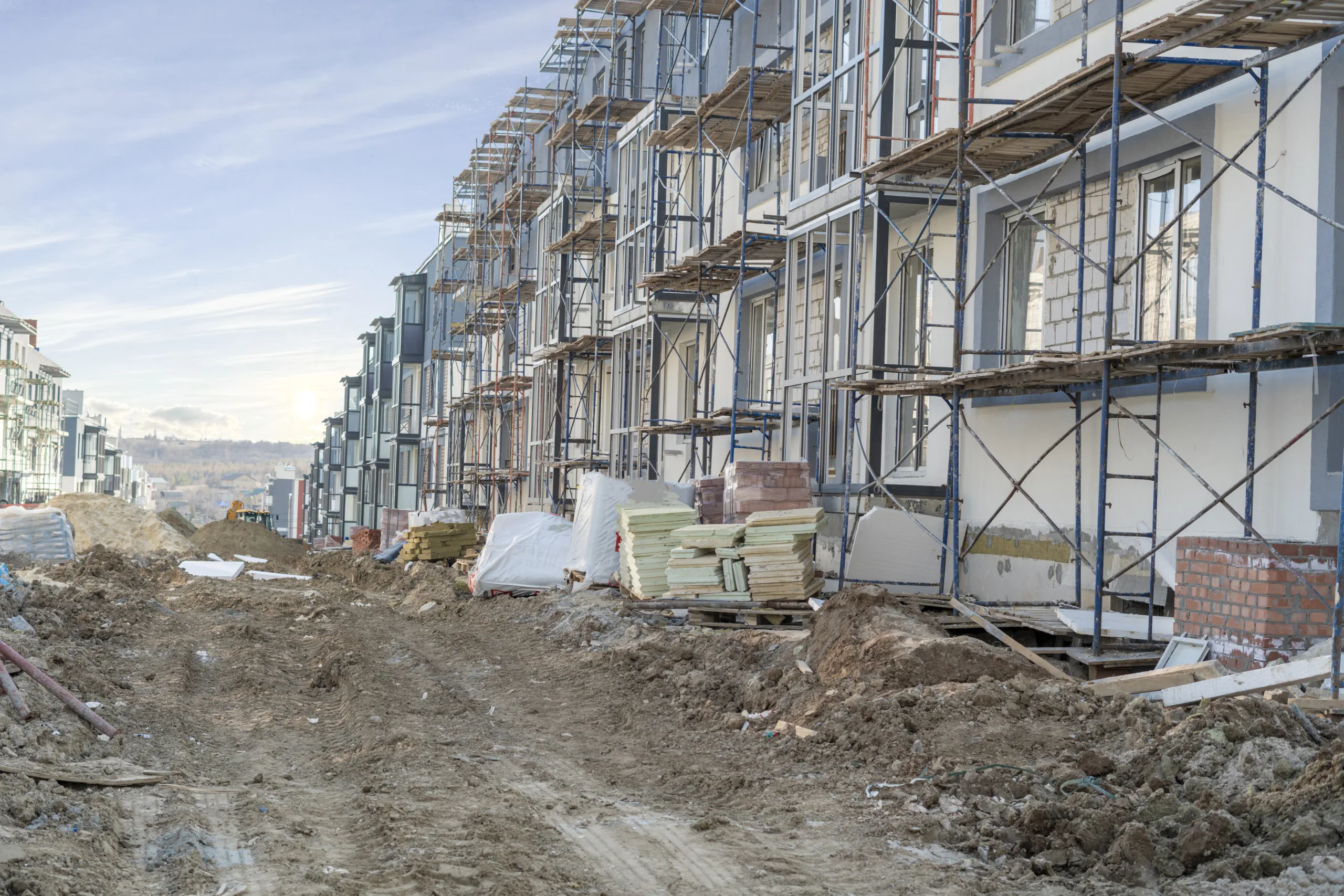U.S. Banks Brace for Losses With Wave of CRE Loan Modifications
CRE loan modifications jumped 66% as lenders brace for refinancing challenges.
Good morning. The “extend and pretend” era is back. With property values under pressure and borrowers struggling to refinance, banks are rewriting billions in CRE debt to buy breathing room.
Today’s issue is brought to you by LendingOne—the nation’s fastest-growing build-to-rent (BTR) and SFR portfolio lender for institutional investors.
🎙️This week on No Cap: Heitman’s Brian Pieracci explains why alternatives like self-storage and senior housing are outperforming traditional CRE and reshaping what “core” really means.
Market Snapshot
|
|
||||
|
|
*Data as of 10/08/2025 market close.
Extend & Pretend
U.S. Banks Brace for Losses With Wave of CRE Loan Modifications
U.S. banks are rushing to rework troubled commercial real estate loans as higher interest rates and falling property values squeeze borrowers and lenders alike.
Modifications spike: The value of modified CRE loans rose 66% year-over-year through June 2025, per the St. Louis Fed. These changes—ranging from rate cuts and payment delays to extended terms—signal a growing financial strain, although the Fed says “prudent modifications” can help mitigate the broader impact.
Higher rates, higher risk: The surge can be traced back to the shift from ultra-low to elevated interest rates. Loans made during the zero-rate era are now struggling, with many underwater. Borrowers short on equity or refinancing options are leaving banks more exposed to potential losses.
The numbers tell the story: Modified CRE loans have climbed steadily. The Fed points to a combination of rate hikes, rising expenses, and shifting market fundamentals driving this momentum.

Lenders in defensive mode: Facing higher default risk, banks are boosting reserves and taking a cautious stance. Many have adopted an “extend and pretend” strategy—prolonging loan terms to delay losses while hoping market conditions improve.
Maturity wall ahead: Loans originated during 2019–2021’s low-rate window are now coming due, and refinancing is proving difficult. With values lower, borrowing costs higher, and demand weaker in key asset classes (notably office), refinancing is harder—tightening the vise on both borrowers and their banks.
➥ THE TAKEAWAY
Borrowed time: With refinancing hurdles mounting and loan modifications accelerating, banks are buying time, but not necessarily safety. Unless rates fall or property fundamentals improve, today’s “extend and pretend” could turn into tomorrow’s reckoning.
TOGETHER WITH LENDINGONE
Strategic Financing Options for Institutional Investors
LendingOne is one of the nation's fastest-growing Build-to-Rent (BTR) and SFR Portfolio lenders for institutional investors. Our Institutional Group provides flexible financing, specializing in high-value deals and customized solutions to help empower institutional investors to scale.
Benefits of Working With Us:
-
BTR Aggregation/Reno Facilities and SFR Portfolio Term Loans
-
Backed by a Leading Global Asset Manager
-
Customized Non-Recourse Financing
-
$100M+ Loan Capacity
-
5, 7, 10-Year Term Options
*This is a paid advertisement. Please see the full disclosure at the bottom of the newsletter.
✍️ Editor’s Picks
-
Unlock revenue: HAH Parking is a software suite proven to boost revenue with zero capex. CRE pros earn 50% gross profits for 12 months per referred parking lot. Learn More. (sponsored)
-
Money in motion: A wave of private capital is fueling CRE deals, targeting high-value assets amid a rare pricing reset and improving market confidence.
-
Hold & roll: CRE sponsors are increasingly using continuation vehicles to hold assets longer and return capital amid tough refinancing and exit conditions.
-
Dimon's domain: JPMorgan is transforming Midtown Manhattan into its own financial fortress, anchoring a multi-block campus around its new $5B HQ.
-
Deal disruption: The U.S. government shutdown is disrupting CRE, stalling data, deals, and demand, especially in retail and hospitality.
-
Bad blood: Donald Bren has reportedly disowned his son David amid lawsuits alleging the younger Bren used a fake luxury car club to fund his lifestyle.
-
REIT retreat: REIT stocks lagged the broader market in Q3 2025, with the Dow Jones Equity All REIT index returning just 2.7% versus the S&P 500's 8.1%.
🏘️ MULTIFAMILY
-
Delivery streak: U.S. apartment completions stayed above the 100,000-unit mark for a 10th straight quarter in Q3.
-
Impact underwriting: Institutional investors are tightening underwriting for affordable housing, blending financial discipline with social impact.
-
Rent reliance: Despite a sharp slowdown in U.S. household growth, rental demand is expected to stay strong as affordability barriers and shifting lifestyles keep more Americans renting.
-
Dorm demand: Investment is flowing back into student housing, with major partnerships and portfolio expansions signaling confidence in the sector.
-
Mandate upheld: A New Jersey judge dismissed a lawsuit from 27 cities challenging the state’s affordable housing law, reinforcing long-standing obligations under the Mount Laurel Doctrine.
-
Market revival: Bozzuto and Kimco have broken ground on Daly City’s first major market-rate apartment project in over 15 years.
🏭 Industrial
-
Storage strength: REIT street rates for self-storage ticked up 1.7% year-over-year in Q2 2025, signaling a potential rebound in pricing power.
-
Data grab: Brookfield’s Centersquare just acquired 10 North American data centers in a $1B self-funded push to meet surging AI and cloud demand.
-
Hydro hustle: Apollo is acquiring Eagle Creek Renewable Energy to power data centers amid the surge in AI-driven energy demand.
-
Regional divide: Industrial leasing slowed in Q3, but modern facilities saw strong demand as older buildings lagged and regional rent trends diverged.
🏬 RETAIL
-
Urban exodus: San Francisco Centre is 93% vacant and losing millions, as crime, remote work, and retail shifts leave the once-thriving mall in freefall.
-
Publix play: Bain Capital and 11North landed $260M to buy a 10-property Publix-anchored retail portfolio.
-
Timeless trade: Westwood’s iconic Holmby Hall sold for nearly $33M, with plans to upgrade while preserving its 1929 character.
-
Social shopping: Retail spaces like bookstores, gyms, and malls are rebounding as social hubs, with consumers once again seeking in-person experiences.
-
Chapter 2: Barnes & Noble is staging a retail revival by embracing flexible store formats, experiential design, and neighborhood-tailored leasing strategies.
-
Retail playground: Funlab will debut its immersive mini-golf and escape room concepts Irvine Spectrum Center, as experience-based retail grows in malls.
🏢 OFFICE
-
Tower recap: RXR secured a $1.45B recap for 1211 Avenue of the Americas, with over $250M allocated to tenant upgrades.
-
Double trouble: Ken Griffin’s planned Citadel tower in Miami’s Brickell is now projected to cost $2.5B,more than double initial estimates.
-
Smarter spaces : AI is reviving Bay Area office demand, but this rebound favors smaller, flexible leases and cautious investment over pre-pandemic exuberance.
-
Back to base: Walgreens will vacate its 200K SF office in Chicago’s Old Post Office by January, consolidating employees back to its Deerfield HQ.
-
Eastward expansion: Tech firms from Amazon to OpenAI are choosing Bellevue over Seattle for safer streets, better schools, and modern offices.
🏨 HOSPITALITY
-
Hotel hand-off: JRE Partners surrendered Chicago’s 21c Museum Hotel to lender ACORE Capital in a deed-in-lieu deal, marking another hit to the city’s hotel sector.
-
Desert megaproject: Costco and two Marriott hotels will anchor the $7B Halo Vista mixed-use project near TSMC’s Arizona chip campus.
A MESSAGE FROM AGORA
Webinar: The AI Shortcuts Every CRE Professional Should Know
Discover how top CRE pros are using AI to save hours, automate reporting, and stand out at work.
Whether you’re managing assets, raising capital, or just looking to get ahead in your career, this webinar will give you the AI shortcuts to work smarter and make yourself indispensable.
*This is a paid advertisement. Please see the full disclosure at the bottom of the newsletter.
📈 CHART OF THE DAY
Nearly Three Times More Apartments Absorbed Than Started This Year

U.S. renters leased nearly 2.7 times more apartments than developers started over the past year, as construction slowed to its lowest level in a decade.

You currently have 0 referrals, only 1 away from receiving Multifamily Stress Test Model.
What did you think of today's newsletter? |






















